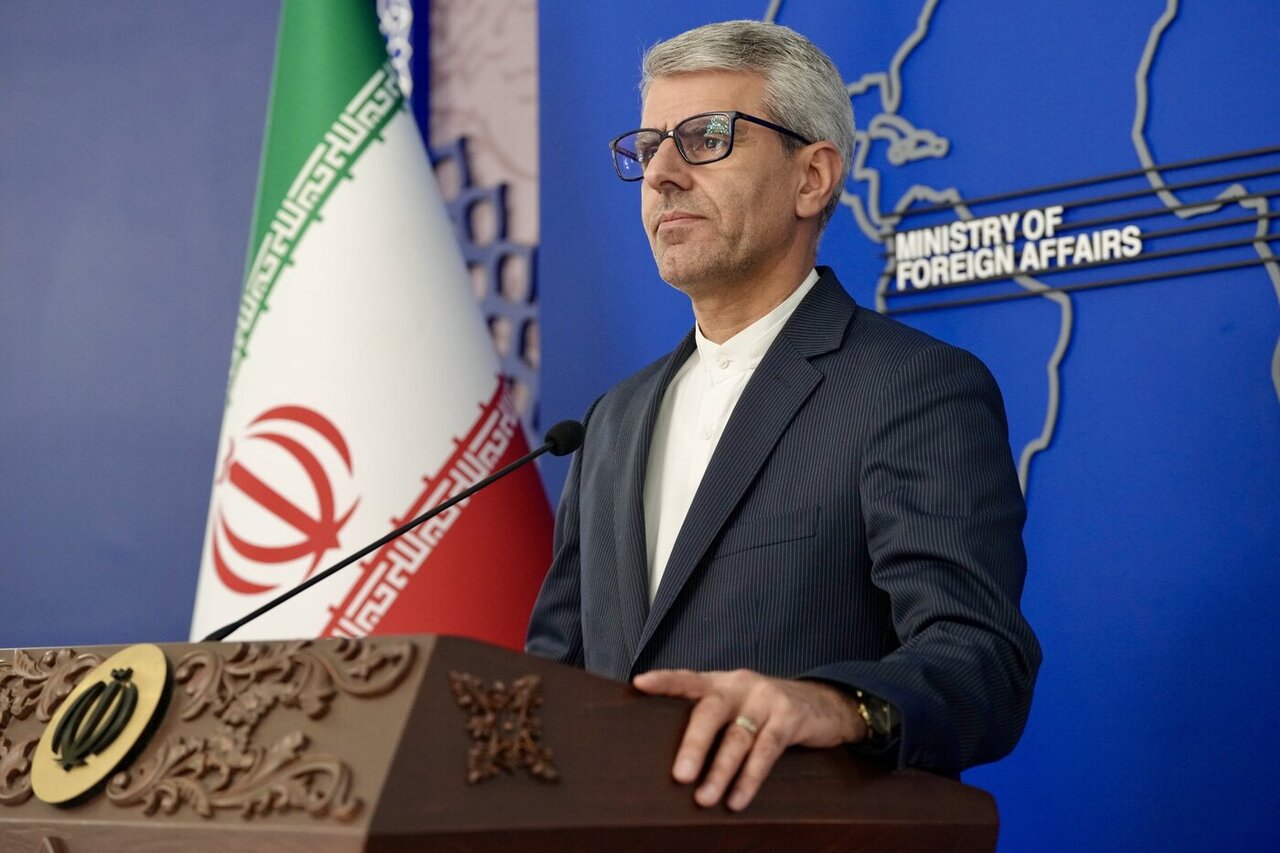Enrichment not up for debate, Iran Foreign Ministry tells CNN

TEHRAN – Iran has reiterated that uranium enrichment remains a red line in its nuclear negotiations with the United States, with Tehran’s Foreign Ministry spokesperson emphasizing that Washington appears to acknowledge this position.
“If the intention is to make sure that Iran’s nuclear program would not be weaponized, I think that’s something that we could simply do,” said Esmail Baghaei, speaking to CNN in Tehran on Monday.
He stressed that Iran’s right to peaceful nuclear energy is non-negotiable—a position the Islamic Republic has consistently maintained throughout years of diplomatic engagement.
“If the (US’) intention is to deprive Iranians of their right to peaceful nuclear energy, I think that would be very problematic to the extent that I think it would really challenge the whole process,” he warned.
The remarks followed the conclusion of the fifth round of indirect U.S.-Iran nuclear talks, held in Rome last Friday. The discussions prompted cautious optimism from U.S. President Donald Trump, who noted signs of progress.
“We had some very good talks with Iran yesterday and today, and let’s see what happens. But I think we could have some good news on the Iran front,” Trump told reporters in New Jersey on Sunday before departing for Washington.
Iranian Foreign Minister Abbas Araghchi described the latest round of talks as “one of the most professional rounds of negotiations” to date, though he acknowledged that several key issues remain unresolved. “Too complicated to be resolved in two or three meetings,” he said.
While the Trump administration has maintained a firm public stance demanding a halt to all uranium enrichment—an activity central to both energy production and potential weapons development—Baghaei suggested that U.S. negotiators may be taking a more pragmatic approach behind closed doors.
“The fact that so far we have continued our talks means that we understand there is a certain level of understanding that Iran cannot under any circumstances give up its right to peaceful nuclear energy,” he said.
Baghaei also voiced optimism that a mutually beneficial agreement could be reached. “If really there is a will, there’s ways,” he said. “There is not only one way, there are so many ways.”
He rejected ongoing threats by the Israeli regime to strike Iran’s nuclear facilities, insisting that Tehran would not bow to intimidation.
“Iranians would not be conducive to any sort of pressure,” he said. “When it comes to using that language, Iranians will come with one voice, and we will certainly defend our national security.”
In a recent address, Leader of the Islamic Revolution Ayatollah Seyyed Ali Khamenei condemned U.S. efforts to pressure Iran into halting enrichment. He called such demands “completely wrong,” and asserted that the Islamic Republic does not need permission from any foreign power to pursue its peaceful nuclear program.
Since April, Tehran and Washington have held five rounds of indirect negotiations in Rome and the Omani capital, Muscat. Iranian officials have frequently criticized the U.S. side for shifting its positions during the talks, arguing that such “contradictory” behavior undermines the diplomatic process.
During his first term in office (2017–2021), President Trump unilaterally withdrew the United States from the 2015 nuclear agreement—officially known as the Joint Comprehensive Plan of Action (JCPOA)—which had placed significant restrictions on Iran’s nuclear activities in exchange for sanctions relief.
Calling the accord “one-sided,” Trump reimposed broad U.S. sanctions on Iran. In response, Tehran began scaling back its voluntary compliance with the deal, expanding its nuclear energy program within the framework of international safeguards.
Leave a Comment